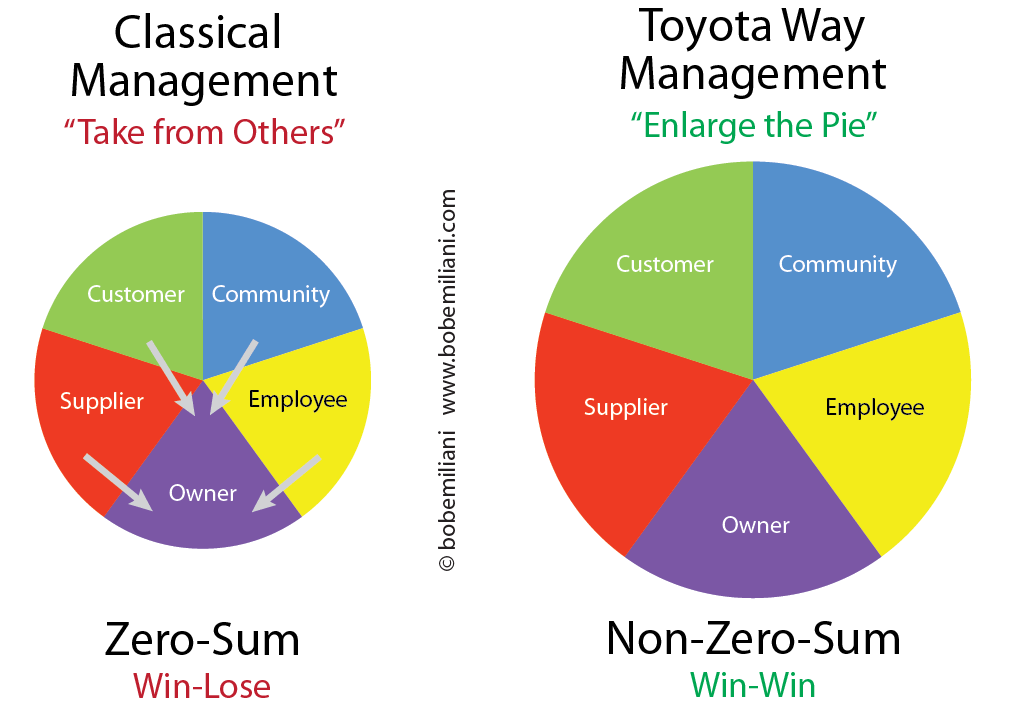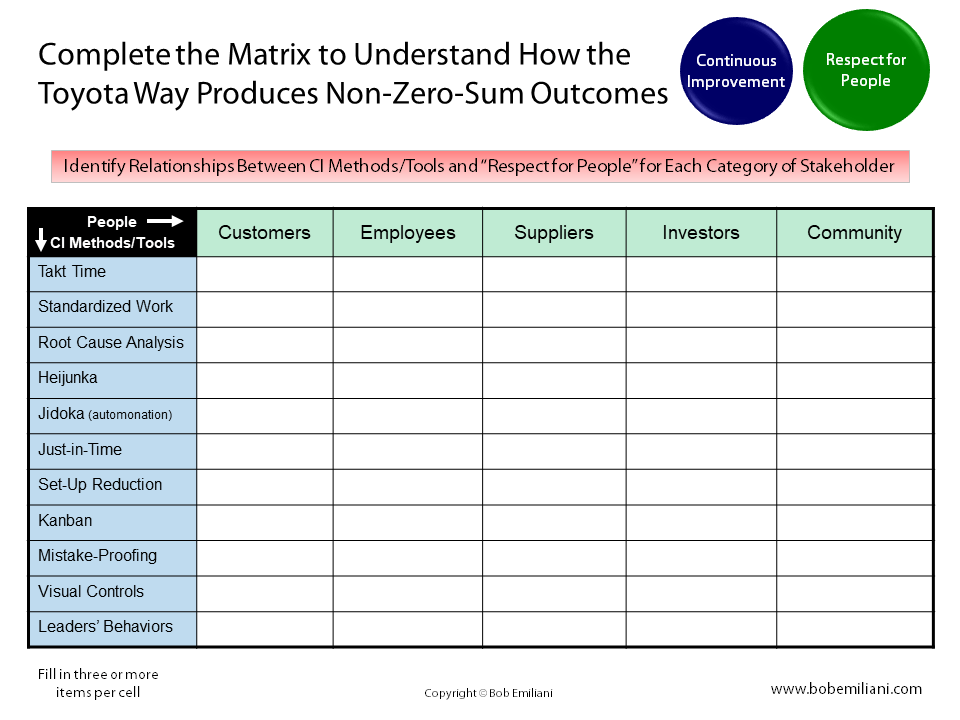Most people are not familiar with the history of progressive management because they do not see how it is relevant to today’s problems or needs. But I can assure you this history is relevant to humanity today and beyond.
Beginning in the late 1800s with what later became known as Scientific Management, the primary purpose of improving management was to increase productivity by improving the work of both managers and workers so that key stakeholders (owners, managers, and workers) could share larger financial gains. Scientific Management explicitly sought to eliminate destructive zero-sum outcomes that were then (and now) characteristic of classical management, as shown in the left side of the image below. Why? Because classical management produces happiness for some and mass produces sadness for many. This is what most CEO think they should be doing. Obviously, they aim very low.

Toyota people built upon the work of those who created Scientific Management and developed their own unique system of management to improve productivity and which also sought (and still seeks) to create beneficial non-zero-sum outcomes, as shown in the right side of the image above. The Toyota Way, built over time, is a remarkable achievement that continues to develop and improve in response to changing conditions. It comes much closer to mass producing happiness for all. This is what all CEOs should be doing — aiming higher and challenging themselves to do better rather than perpetually accepting “good enough.”
The image above is perhaps the simplest way to understand the difference between classical management and Toyota or Lean management. The former weakens people and society, while the latter strengthens people and society. Yet classical management remains the dominant management practice, with Toyota-style management and Lean still lagging far behind.
A more challenging way one can understand the non-zero-sum nature of the Toyota Way (and its derivative, Lean) is to identify relationships between continuous the improvement methods and “respect for people” for each category of people (the principal stakeholders).

Remarkably, business schools don’t teach this, economists don’t understand this, neither CEOs nor politicians care about this, and neither does society due to deference to those who are superior in status and wealth. Such is the great power of classical management, the institution of leadership, and associated preconceptions. And these are strenuously defended by vested interests for obvious reasons (status, power, honor, money, etc.).
NOTE: In an imperfect world, “win-win” is cautiously understood as “you might not win as much as you like, but you will not lose as much as you could” in recognition of the difficult but doable challenge of balancing diverse needs and interests. As Akio Toyoda put it (bold added):
We must help lift up our communities, support our families, care for the elderly and disadvantaged, and foster the development of our children. The philosophy this company was built on, The Toyota Way will never change. But instead of being known as a mass producer of cars, I would really like to think of ourselves as a mass producer of happiness.
The Toyota Way is the way to mass producing happiness. We must expect no less from our leaders.
